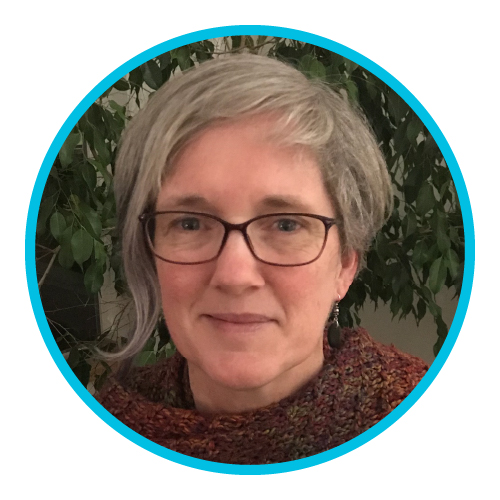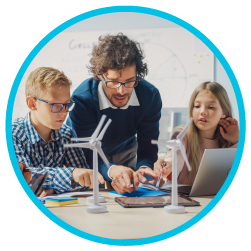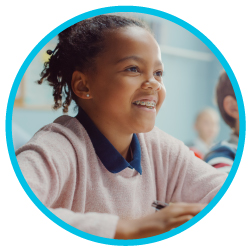Los Angeles • December 9-11
Area Conference on Science Education
Registration is now closed and no on-site registration is planned.
Attending the Los Angeles Conference?
Get access to sessions, schedules, presenters, and more.
To attend the NSTA area conferences, proof of a COVID vaccination and/or a negative COVID test through CLEAR Health Pass is required.
Together again for one of the most anticipated science education conferences this Fall!
Are you ready to travel? We are—and we are planning a terrific professional learning experience for you in Los Angeles this December at the face-to-face NSTA Area Conference on Science Education.
Everything you remember from pre-pandemic conferences will be included in our face-to-face conference in Los Angeles, including our famous Exhibit Hall and exhibitor workshops as well as hundreds of presentations and sessions that will focus on inclusive classrooms, supporting students post COVID-19, developing authentic assessment strategies, linking literacy and science, and so much more.

Customize your conference experience!
Browse our full selection of sessions that you can attend.
What's Happening in Los Angeles
Speakers
Opening Keynote Presentation
Thursday, December 9 • 3:45–5:00 PM
Roving Mars and Exploring Solar System Worlds
Bethany L. Ehlmann
Professor of Planetary Science, California Institute of Technology, Pasadena
The dawn of the 21st century is a golden age for scientific space exploration. Missions from NASA and a growing set of international and commercial organizations launch space telescopes and send flyby, orbiter, rover, and sample return missions to explore our solar system. Dr. Ehlmann has been part of planetary mission teams since she was an undergraduate student working on the Mars Exploration Rovers. She has since worked on the Mars Reconnaissance Orbiter, the Curiosity and Perseverance Mars rovers, the Dawn orbiter mission to the dwarf planet and asteroid Ceres, and is now the principal investigator leading the Lunar Trailblazer mission to map ice on the Moon. She will describe her journey from a child who loved science and science fiction to planetary scientist, telling the story of how objects that were once pinpricks of light in Earth’s sky have become worlds and how discoveries from the journeys of spacecraft can inspire the next generation of explorers.
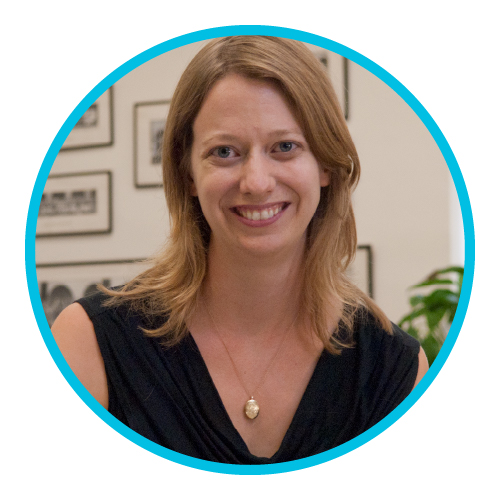
Speaker Bio
Featured Presentation
Friday, December 10 • 11:00 AM–12 Noon
The Meaning Beyond the Words: How Language, Race, and Culture Impact Science Teaching and Learning
Bryan Brown, PhD
Associate Professor of Science Education, Stanford University
This presentation explores how race, culture, and language intersect to create the condition of contemporary learning. For years, research on the language of classrooms explored how the way we say things impacts students’ sense of belonging. Despite this research, Science and Technology Education have failed to adequately explore how issues of race, language, and culture shape the outcomes of teaching and learning in science. Through a sequence of research, this presentation explores the theoretical and pragmatic aspects of this dilemma. From a theoretical perspective, the talk will explore the Language-Identity dilemma. As students learn, the way academic language is taught to them can present a cognitive and cultural conflict. From a cognitive perspective, if science is taught without respect to the implications of how language is learned, students can be misunderstood and misunderstand the teacher’s complex discourse. From a cultural conflict perspective, students may feel they are cultural outsiders when the language of the classroom positions them as outsiders. The presentation provides an overview of a series of qualitative and quantitative experiments that document the realities of this complex interaction.
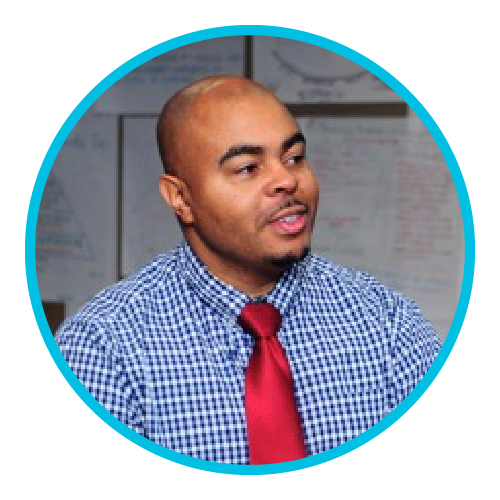
Speaker Bio
Featured Presentation
Saturday, December 11 • 3:15–4:15 PM
Fostering Joy: Designing Science Learning Around Climate Justice and Action
Deb L. Morrison
Educator and Learning Scientist, Institute of Science and Math Education, College of Education, University of Washington
The intersections of climate, justice, and science learning offer a multitude of challenges and opportunities. As we look forward to our shared future, there is a growing understanding for the need to accelerate just climate action in mitigation of fossil fuel emissions and climate change adaptation efforts. However, not all of the choices we make will foster justice and not all decision-making practices on how to act are foundationally equitable in nature. To ensure our communities, particularly our youth, are equipped and inspired to engage in just climate action, we need to design learning that crosses historic boundaries, shifts power dynamics, and engages all involved in transformative experiences.
